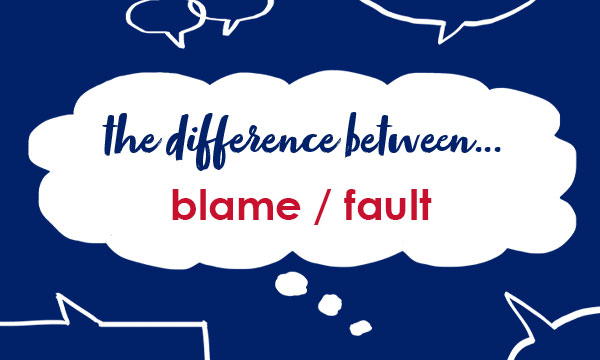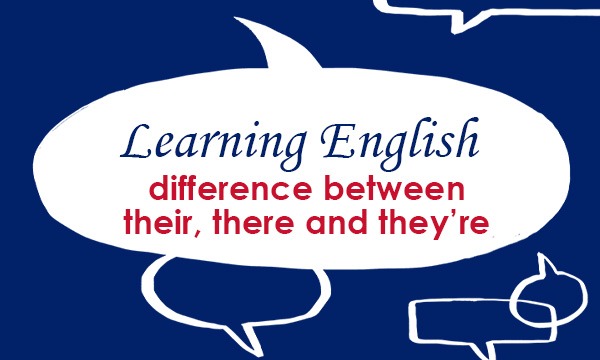This week we are looking at two words which may be confused by learners of English: blame and fault.
blame

If you blame someone for something bad that has happened, you think that they made it happen.
Police blamed the bus driver for the accident.
Don’t blame me!
You can blame something on someone.
Maya blames all her problems on her parents.
If someone is to blame for something bad that has happened, they caused it.
I knew I was partly to blame for the failure of the project.
The study found that schools are not to blame for the laziness of their pupils.
fault

If a bad or undesirable situation is your fault, you caused it or are responsible for it.
It’s not my fault if the car breaks down.
This was all Jack’s fault.
You can say that someone is at fault. Do not say that they are in fault.
The other driver was at fault.
Find out more in our English Usage article.
This blogpost is based on Collins COBUILD English Usage, written for learners of English. For more examples of English usage points, please visit: https://grammar.collinsdictionary.com/english-usage.
All opinions expressed on this blog are those of the individual writers, and do not necessarily reflect the opinions or policies of Collins, or its parent company, HarperCollins.



